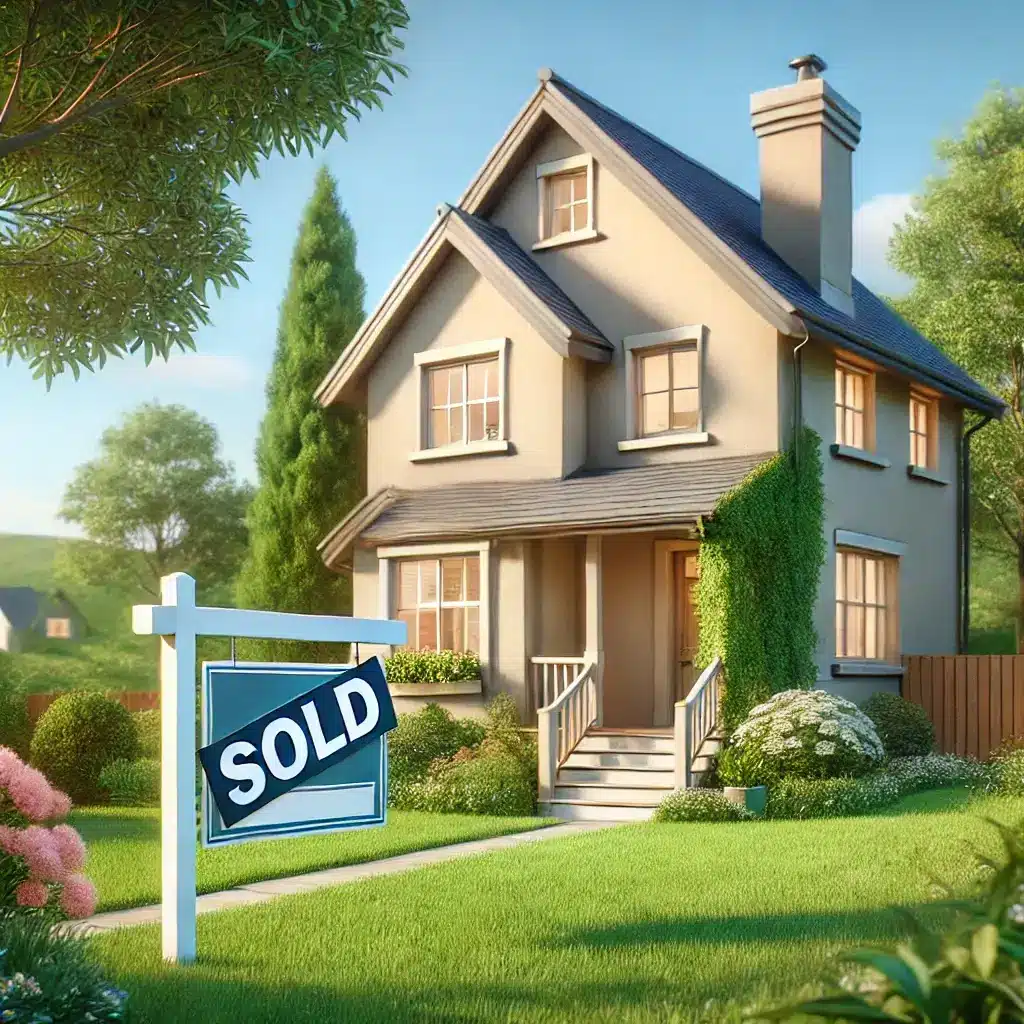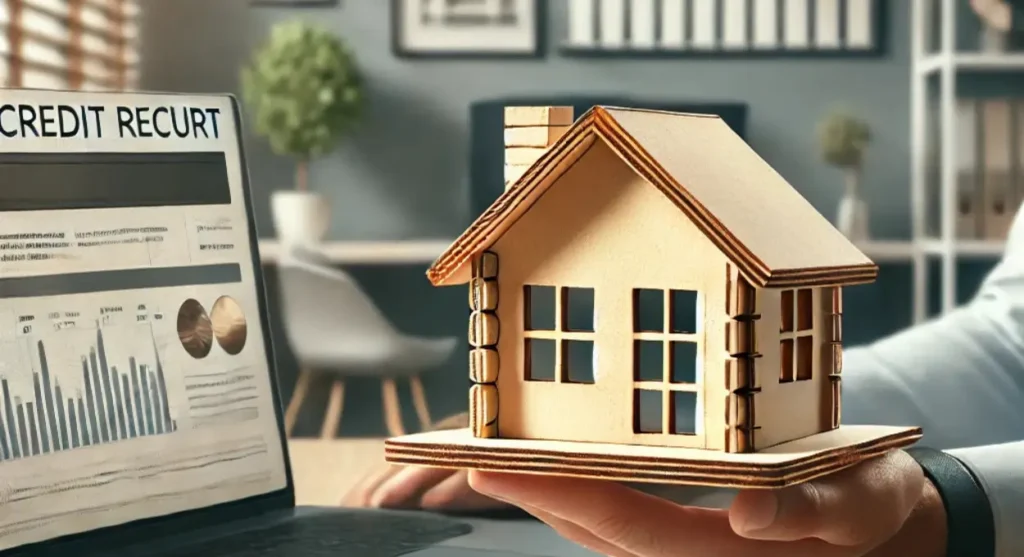Buying a home is a significant milestone, but it can feel out of reach if you have bad credit. The good news is that even with a less-than-perfect credit score, homeownership is still possible. This guide will walk you through the steps to secure a home loan with bad credit, explore your options, and provide tips to improve your financial standing.
To fully understand our tips on securing a home loan with bad credit, reviewing our Credit Score Guide: How to Improve and Maintain Your Score is beneficial.
This post discusses the following points in relation with home loan with bad credit:
Is It Possible to Buy a Home with Bad Credit?
The short answer is yes, you can buy a house with bad credit. However, it may come with challenges. Lenders use your credit score to assess your risk as a borrower, and a low score can result in higher interest rates or stricter loan terms. While a higher credit score (typically 670 or above) is ideal, some lenders specialize in working with borrowers who have poor credit.
The key is to understand your options, be prepared for higher costs, and take steps to strengthen your financial profile.e’ll explore loan options specifically designed for low-credit borrowers.

Best Options for Home Loans with Bad Credit Borrowers
If your credit score is below 620, you may still qualify for certain home loans designed for borrowers with bad credit. Here are some options to consider:
- FHA Loans
Backed by the Federal Housing Administration (FHA), these loans are popular among first-time homebuyers and those with lower credit scores. You may qualify with a credit score as low as 500 (with a 10% down payment) or 580 (with a 3.5% down payment). - VA Loans
If you’re a veteran or active-duty service member, VA loans offer flexible credit requirements and often don’t require a down payment. While the VA doesn’t set a minimum credit score, most lenders look for a score of at least 580. - USDA Loans
USDA loans are designed for low-to-moderate-income borrowers in rural areas. They offer no-down-payment options and may accept credit scores as low as 580. - Subprime Mortgages
These loans are tailored for borrowers with poor credit but often come with higher interest rates and fees. Be cautious and read the terms carefully to avoid predatory lending practices. - Alternative Lenders
Some non-traditional lenders or credit unions may offer more flexible terms for borrowers with bad credit. However, always compare rates and fees to ensure you’re getting a fair deal.
Steps to Purchasing a Home with Bad Credit
Buying a house with bad credit requires careful planning and preparation. Follow these steps to improve your chances of approval:
- Check Your Credit Report
Request a free copy of your credit report from the three major credit bureaus (Experian, Equifax, and TransUnion). Review it for errors and dispute any inaccuracies that could be dragging your score down. - Save for a Larger Down Payment
A larger down payment can offset the risk of bad credit, making lenders more likely to approve your application. Aim for at least 10-20% of the home’s purchase price. - Lower Your Debt-to-Income Ratio (DTI)
Lenders evaluate your DTI to determine if you can afford monthly payments. Pay down existing debts to improve your DTI and increase your chances of approval. - Get Pre-Approved
Shop around for lenders who specialize in bad credit loans and get pre-approved. This will give you a clear idea of your budget and show sellers you’re a serious buyer. - Consider a Co-Signer
If possible, ask a trusted friend or family member with good credit to co-sign your loan. This can help you qualify for better terms. - Be Prepared for Higher Costs
With bad credit, you may face higher interest rates, private mortgage insurance (PMI), or additional fees. Factor these costs into your budget.
Boosting Your Credit Score Before Buying a Home
In order to get a Home Loan with Bad Credit, you need to follow some steps. Improving your credit score before applying for a mortgage can save you thousands of dollars in interest and fees. Here’s how to boost your credit:
- Pay Bills on Time
Your payment history is the most significant factor in your credit score. Set up reminders or automatic payments to avoid late payments. - Reduce Credit Card Balances
Aim to keep your credit utilization below 30% of your available credit. Paying down balances can have a quick positive impact on your score. For more tips on managing your credit card, see our guide, Understanding Credit Cards and Loans. - Avoid New Credit Applications
Each hard inquiry can temporarily lower your score. Avoid applying for new credit cards or loans before applying for a mortgage. - Build a Positive Credit History
If you have a limited credit history, consider becoming an authorized user on someone else’s credit card or taking out a small credit-builder loan. - Work With a Credit Counselor
A certified credit counselor can help you create a plan to improve your credit and manage debt.
Buying a Home with Bad Credit: Is It the Right Choice?
Deciding whether to buy a home with bad credit depends on your financial situation and long-term goals. Here are some pros and cons to consider:
Pros:
- You can start building equity instead of renting.
- Homeownership can provide stability and a sense of accomplishment.
- Some loan programs are designed to help borrowers with bad credit.
Cons:
- Higher interest rates and fees can make homeownership more expensive.
- You may face stricter loan terms or requirements.
- If your financial situation is unstable, you risk foreclosure.
Before making a decision, evaluate your income, savings, and ability to handle monthly payments. If you’re unsure, consider waiting to improve your credit and save more for a down payment.
Final Thoughts on Home Loan with Bad Credit
While bad credit can make buying a home more challenging, it doesn’t have to stand in your way. By exploring loan options, improving your credit, and preparing financially, you can achieve your dream of homeownership. Take the time to research, plan, and seek professional advice to ensure you make the best decision for your future.y today and turn your dream of owning a home into a reality!
Frequently Asked Questions
1. Can I get a home loan with a credit score below 500?
While it’s challenging, some lenders may offer loans to borrowers with very low credit scores. However, you may need to explore alternative options, such as subprime mortgages or working with a co-signer. It’s also a good idea to focus on improving your credit before applying.
2. What is the minimum credit score for an FHA loan?
You can qualify for an FHA loan with a credit score as low as 500, but you’ll need a 10% down payment. If your score is 580 or higher, you may qualify with just a 3.5% down payment.
3. How can I improve my credit score quickly?
To improve your credit score quickly, focus on paying down credit card balances, making all payments on time, and disputing any errors on your credit report. Avoid applying for new credit, as this can result in hard inquiries that temporarily lower your score.
4. Should I buy a home now or wait to improve my credit?
This depends on your financial situation. If you’re ready to handle higher interest rates and fees, buying now may be an option. However, waiting to improve your credit can save you money in the long run by qualifying for better loan terms.
5. Can a co-signer help me get a home loan with bad credit?
Yes, a co-signer with good credit can improve your chances of approval and help you secure better interest rates. Keep in mind that the co-signer is equally responsible for the loan, so choose someone who understands the risks.
6. What are the risks of buying a home with bad credit?
The main risks include higher interest rates, stricter loan terms, and the potential for foreclosure if you’re unable to make payments. It’s important to carefully evaluate your financial stability before committing to a mortgage.

